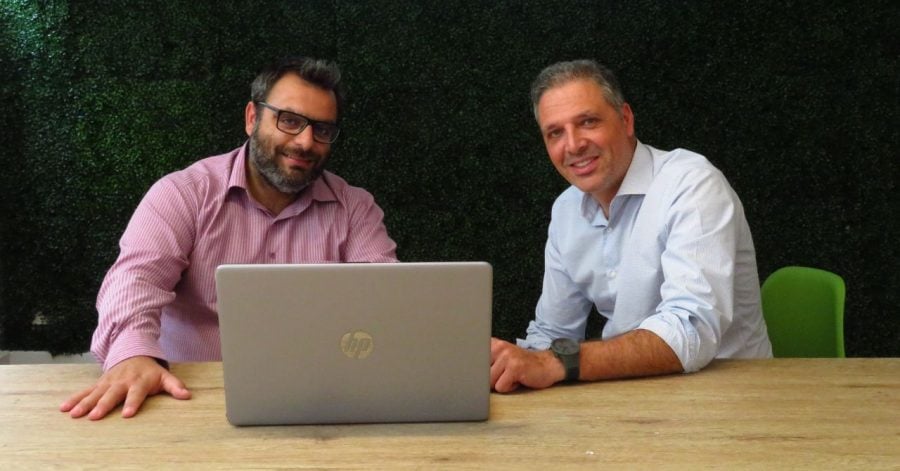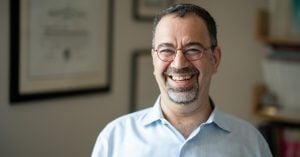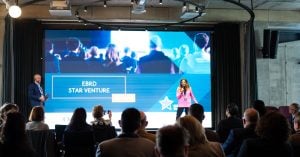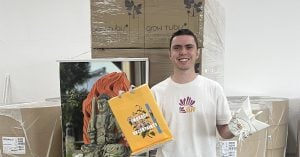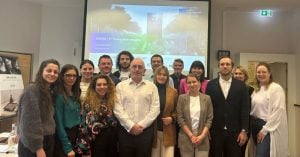Imagine yourself being a farmer who has built their whole life around growing a sustainable produce that also serves as a means to feed their family. You work continuously during the course of the day, trying to find an adequate solution to nurture your product effectively, sometimes at times of drought and heavy precipitation. Now imagine having quick access to a range of adequate solutions to experiment with, just by the click of a button. This is what Greek-based Wikifarmer provides – exactly by opening your browser.
Offering its dual service – a Library that serves as the first farming encyclopedia and a marketplace where farmers can sell their produce globally, Wikifarmer has quickly become a well-known name for providing convenience and transparency in the agricultural realm.
After having surpassed 9 million unique users (in 12 language versions), Wikifarmer is becoming a platform where people can search anything related to agriculture (products, suppliers, price range, etc.) and complete their orders with security and confidence.
By simplifying transactions in the agricultural sector, Wikifarmer allows everyone to have equal access to whatever information they need and to any market they want – connecting producers with buyers, avoiding the unnecessary large commissions paid in the food value chain, and building transparency and accountability in every transaction.
The Recursive talked to the CEO and Co-founder of Wikifarmer -Ilias Sousis, to peek through the curtain of this fast-scaling business and get to know its social and environmental mission.
The Recursive: What are the biggest challenges in the agricultural sector we are collectively tackling in Southeast Europe?
Ilias Sousis: We think that still one of the biggest challenges of the agricultural sector is related to producers’ access to the market.
Farmers produce the most valuable part of the food supply chain, but still get the least value out of it.
In addition to that, we think that the education of farmers is a big issue, as they don’t always use the best practices that will help them optimize their yield and contribute to environmental sustainability.
In the short term farmers will also face very serious challenges because of the war in Ukraine, as this massively influences their production costs.
What was the main business problem that you aimed to solve with Wikifarmer? What about the main social issue?
Wikifarmer’s mission is to resolve two main challenges in agriculture at a regional and global level. Firstly, although this might sound unbelievable, a lot of farmers still cultivate their fields with methods that they have learnt from their grandfathers, which is not always optimal in terms of environmental and financial sustainability (their yield is lower than it could be). That is why we have invested in offering a lot of free content on best practices of agriculture in more than 15 languages.
Secondly, farming commerce is still one of the few industries that has not been digitized and the value chain is still ruled by multiple intermediary parties, like it was happening in all industries before digitization. Thus, we are trying to help farmers come closer to the end buyer and extract more value out of the supply chain. This will be beneficial both for buyers and sellers as farmers’ profits will increase, which will lead to a higher investment in their farms. It will mean higher employment rates, increased investment of small farms in new technologies, and better quality of products – this will eventually lead to a more sustainable agriculture from all dimensions.
Can you tell us more about the business model of Wikifarmer? What is the innovation behind?
Our business model is quite simple and is mostly based on getting a commission per transaction. Our farmers can register and upload their products for free and we act as their sales and marketing department, by promoting their products to thousands of B2B buyers. If a sale comes, we help them fulfill the order and we receive a commission out of this sale, which is much less than what it would cost them to sell to an intermediary party. In that way we manage to help producers sell at a higher price and buyers purchase at a much lower one.
On the other hand, we help buyers purchase products with more transparency, safety, and responsibility. In addition, we offer them all the necessary tools to more productively source multiple products from multiple suppliers, acting as an extension of the sourcing department.
The innovation behind this is that we are trying to create a 360 ecosystem to enable farmers to learn, sell, and make their lives easier in terms of logistics, financing, and other areas of their daily business lives.
This is to be done by investing in technological solutions and partnerships with other companies that complete this puzzle.
What were the biggest challenges that you faced along the way of launching the business? How do you find the balance between maximizing social impact and financial returns?
I would say that the biggest challenge is that the agrifood business from both the supplier and the buyer side is still not used to digital channels. So, being one of the first agrifood marketplaces in the world needs to be combined with a large investment on training sellers and buyers on the tools that exist. We have to dedicate a lot of resources on that front. In regards to the second question, the more profitable our farmers become, the better the financial return of our company will be, so the two goals are fully aligned.
From an investors’ point, what is the key feature that distinguishes Wikifarmer on the market?
I think what distinguishes us is the connection between our Wikifarmer Library and our Wikifarmer Marketplace. Our Library has already been translated in 15 languages and has been visited by more than 12 million farmers from all around the world, so we easily convert them to sellers in the countries where we activate our Marketplace. Becoming a hub for farmers and their potential buyers is what really makes the potential of the platform unlimited in terms of future offerings to these two audiences. Last but not least, this is an untapped business opportunity as the number of farms that exist in the world is around 500M and the total agrifood business is calculated to be in the trillions. However, a very small portion of that goes through digital channels.
How have customers responded to the solution so far? Could you share any numbers or qualitative feedback at this point?
The feedback is really positive as we act as an extension of their purchasing department. Imagine having someone in your business handling your sourcing for hundreds of potential suppliers, helping with logistics, and ensuring the quality – all on one platform. This is the main reason that our platform is very well-received by small and medium businesses that don’t have the resources for this, and by larger businesses that need to source locally and help small/medium farms. We have conducted more than 30,000 transactions already and we see an increasing trend of buyers coming to our platform, especially in periods when disruptions happen in the agrifood industry.
What are the key milestones that Wikifarmer aims to achieve in the next 5-year period – from a business perspective and from a social perspective?
Well, our goal is clear. Our main milestone is to become the leading platform for agricultural outputs in Europe, adding more than 100,000 farmers to our platform, so that anyone who searches for an agrifood product can easily find it on our platform.
The second milestone is to develop our technological product in a way that buyers and sellers minimize all the effort and time needed to make a B2B transaction through automating most of the processes that are involved.
In the 5-year period, our ambition is to also enter markets where farmers really need us, such as Africa and Latin America.

